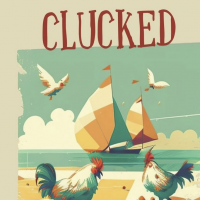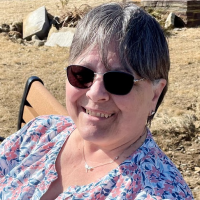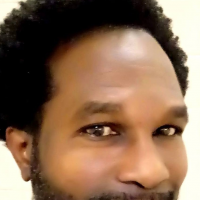If your book is traditionally published, you may not have any idea how many units you've sold until you receive a royalty statement from your publisher. With some publishers, this may only be once or twice a year!
One of the most useful tools that I've found to monitor sales of my books are the Amazon sales estimator tools. There are plenty of links to different versions of these tools, just search for that term and you'll find one. These work by estimating your daily and monthly sales by using your book's ranking on Amazon. To find your book's ranking, navigate to the listing and scroll down to Product Details.
Since Kindle book sales are not reported by BookScan, these free estimator tools can give you some valuable information on how many Kindle and print books you're selling at any given time.
Troy Hollan - author of Clucked - A Quirky Nautical Tale of Adventure, Misadventure and Justice Served
If you're like me, marketing is the hardest thing to tackle, especially if you're an indie author/publisher. Like any job, there are elements you like more than others and some that you must do to get the work out there. Think of marketing as a job requirement. You don't have to do every interview or be connected on every social media outlet, pick one or two. Even soft marketing can make a world of difference for your book. All Author is a wonderful platform for those who are marketing shy (They did not plug me to say that, it's just how I feel). I feel fortunate to have found them. As your royalties expand, your marketing skills can expand with it. Through trial and error, you find what works, keep those tactics in your toolbox, and fine-tune what isn't working. Try not to get discouraged. Most people are not overnight successes. They worked for years in the background fine-tuning their skills and craft before getting noticed.
Write as two selves—your writer self and your reader self. Write what you would like to see written and trust your readers will follow. Come at the page with truth (or your characters' truths) and conviction. Write rich characters. Spend time considering the backstory that never makes it to the page. When they become live and in the 3D for you, they will become real for your readers. What I thought was my worst screenplay made it to fifth place in film competition out of five thousand entries. I can only attribute it to my 100% conviction to the characters in that story. Also, be your own editor. Put the work away and pull it out again and cut extraneous fluff and plot points that aren't quite working. Just doing these few things will create a world that readers can immerse themselves in.
Got writer's block? If you're in the middle of a project, sit quietly and consider your characters as if they were real people. Consider what's happening in their lives, what their surroundings are, their hopes and dreams and how what's happening will affect them. How they are feeling?
Now, sit down, put up a new document, and just start writing anything. It doesn't have to be brilliant, you can edit it later.
Carry around a notebook or laptop etc for when you have your next great idea.
Write each day if you can.
Make a plan before you start typing... in my experience this helps me get started.
Add new ideas is as you go - always happens to me after a while of writing the 1st draft.
Start writing your novel from any point, the middle, a random chapter or the end part even!
Never try to write the finished product the first time. I edited the 'Tales of the Magic Piano' no less than twenty times. Write down your ideas initially. Try not to repeat verbs in consecutive sentences. Follow a story board. Be careful as you can with your grammar. Be as artistic as you like. Don't let the rules of grammar prohibit the free flow of artistic expression.
When your done writing your first book. Set it aside then write another one. Then when your done with that one then you can go back and start editing one of them. Then when your done editing that one, start writing something new. Then edit your last book you've written. This way you will always have something to "work on" Do this and you will never run out of "Work"
1. Always include a sliver of truth to fiction, and you have the secret ingredient of relatability.
2. Start writing. Don't over think it.
3. Be honest, even about your darkest emotions. Express it through a character, and you'll find an amazing release.
4. Use actions rather than explanations. Readers want to live the moment with your characters.
5. Edit until the cows come home, once you have that all valuable first draft.
When people ask me how to start their first book, I always say pick up a pen or turn on your laptop.
It may seem obvious to the others who have written and published. However, we must all start somewhere to accomplish our dream of being a writer. It doesn't matter if your writing is awful, incoherent or dishevelled. The fact you have written it down means you are on your way. Never give up. Keep writing. When I started my first book, "For the Love of Murder: A Miscarriage of Justice!" it took me a little over nine years to complete because I kept giving in to indecision and self-doubt. My second novel took me exactly twelve months to complete and will be available on Amazon this week. The links will be provided here—the moral of my advice. Never give up, and keep writing.
There's no secret formula to follow, what works for one author may not work for another. Be prepared to spend hours on promotion until you find what works. Find a few promotional sites with longevity and a good reputation. Crave Books, Fussy Librarian, The Romance Studio, All Author are just a few that work for me.
It's never too late to chase your dreams. I was 50 when I got my first book published, thanks to the encouragement of my family. That was 45 books ago!
Write from inspiration.
Don't isolate yourself from family.
When there's a writers block find events or something you've always wanted to do. It clears the mind.
Like studying for a test in college, never write beyond 8 hours in a given day. Writers burnout.
Let the writing come to you.
Successfully marketing your book to the leadership community requires a targeted approach that focuses on providing valuable content, building credibility, and leveraging relevant platforms. By understanding the specific needs and interests of the leadership community, you can tailor your marketing efforts to effectively reach and engage with this audience. Here are five book marketing tips and insights, specifically tailored to reaching the leadership community:
1. Define Your Target Audience: To effectively market your book to the leadership community, it's crucial to clearly define your target audience within this community. Consider the specific subgroups or niches within leadership, such as executives, entrepreneurs, or aspiring leaders. Understanding their interests, challenges, and aspirations will help you tailor your marketing messages and reach the right people.
2. Leverage Thought Leadership Platforms: Position yourself as a thought leader by utilizing various platforms that cater to the leadership community. Start by creating a blog or website where you can share valuable insights, practical advice, and thought-provoking content related to leadership. Engage in guest posting on influential leadership blogs, contribute articles to relevant publications, and actively participate in leadership-focused forums and communities.
3. Build an Author Platform: Establishing a strong online presence as an author is essential for marketing your book to the leadership community. Create profiles on social media platforms such as LinkedIn and Twitter, where many leaders actively engage. Share valuable content, engage with your audience, and build relationships with influencers and industry experts. Consider hosting webinars or virtual events focused on leadership topics to further establish your expertise.
4. Seek Endorsements and Reviews: Endorsements and positive reviews from recognized leaders in the industry can significantly boost your book's credibility and attract the attention of the leadership community. Reach out to influential leaders, industry experts, and fellow authors who align with your book's themes and request endorsements or reviews. Offer them a complimentary copy of your book and express how their support will help impact and inspire other leaders.
5. Participate in Leadership Conferences and Events: Engaging in leadership conferences, industry events, and workshops provide a great opportunity to connect with your target audience directly. Attend these events as a speaker, panelist, or exhibitor, and leverage the platform to showcase your book. Offer special discounts or promotions for attendees, distribute promotional materials, and engage in networking to build relationships with potential readers and collaborators.
The first thing that an aspiring writer needs to know is identity;the second thing that a writer needs to know is the specific reality that gives birth to the elements of the equality:that is definition is general choice while discretion is unknown productivity and known discernment only imagines reality to acknowledged visible and invisible inspirational qualities. Therefore the writer must have a goal (1) to advance methodology in how utility is correlated. (2) to guide theology in rational interests. (3) to draw perspectives from facts; objectivity and meaning witnesses two confounding variables; (4) comfortable reflection, and (5) evident reporting: These are compassionate events that describe compassion as a marketing guild created to focus the guide in future written expeditions of art, noted crafts that predict the practice itself, which eliminates confirmation bias.
(1)When I am driving, I am in my most thoughtful and meditative state of mind. The voice in my head wants to be heard, and some of it is pure gold, some is garbage. I use a dictation app to capture my thoughts. I find that by taking out the process of typing, conjugating and editing my thoughts stay better on track.
(2)When I read books by others, I pay attention to how they develop characters, plots, etc. I remember what works well and what does not. From this practice, I hone my own skills regarding these elements.
(3)When writing, I do well in cool, quiet places. (4)When editing, I can be in a busy environment. I can hear music. (5)When I have 'writers block', I pause to sort M&Ms. I often have a bag of M&Ms on hand and I eat them by color; first all the reds, then the blues, yellows, and so on. The process of sorting often gets the words flowing before I run out of colors.















